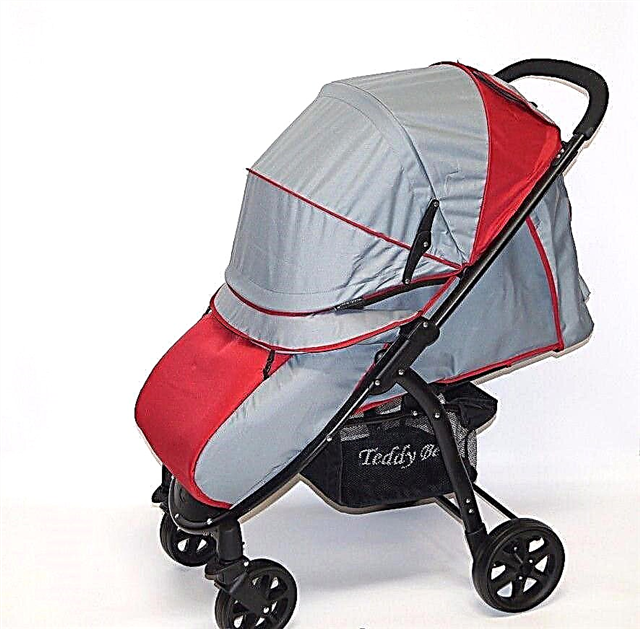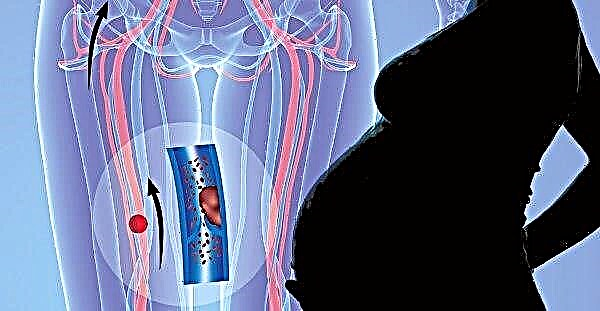
Erius is a very popular drug among modern antihistamines. It helps to relieve allergies, such as severe watery eyes, skin rashes or sneezing attacks. If it is required to prescribe such a medication to a child, syrup is most often chosen, because it is this form of "Erius" that is considered childish.
Benefits
Unlike other dosage forms, "Erius" in syrup can be used even for the smallest patients. It is contraindicated only for babies under one year old. In addition, because of the liquid consistency and sweet taste, it is very easy for young children to drink such a remedy, and such patients often have difficulties with swallowing tablets.

Since this drug belongs to the third generation, it does not penetrate the brain cells and does not have a depressing effect on the central nervous system. This leads to the absence of a pronounced sedative side effect. In addition, like other 3rd generation antihistamines, "Erius" acts for a rather long time, which allows you to take the syrup only once a day.
As the reviews show, most young patients tolerate the drug well. Even if you accidentally slightly exceed the dose, Erius will not cause any toxic effect. In addition, the list of negative side effects that sometimes develop with such a drug is much shorter than that of first and second generation antihistamines.

Release form
The liquid version of Erius is sold in bottles made of dark glass. Inside the bottle is 60 or 120 milliliters of a clear orange liquid that has a sweetish taste. A plastic spoon can be seen next to the syrup bottle in the box. It is used to dispense medication and holds 5 milliliters of syrup. In addition, there is a “2.5 ml” mark on the spoon to measure out the preparation for babies.

Composition
The main component of the drug is called desloratadine and is a metabolite of loratadine, another second-generation antihistamine substance. The dosage of the active ingredient in 1 milliliter of liquid "Erius" is 500 mcg, that is, from 2.5 ml of the drug the patient will receive 1.25 mg, and from a full measuring spoon - 2.5 mg.
Additionally, disodium edetate, sodium citrate, citric acid and sorbitol are added to the syrup. In addition, the medication contains propylene glycol, sodium benzoate, fragrance and water. For a sweet taste, liquid Erius contains sucrose, and the bright color is due to the yellow dye.

Operating principle
The active substance of the syrup blocks receptors that are sensitive to histamine (they are called H1 receptors), and also stops the release of biologically active compounds involved in an inflammatory allergic reaction. Under the influence of "Erius", the permeability of small blood vessels decreases and smooth muscles relax, which leads to the elimination of edema (antiexudative effect). In addition, the syrup has an antipruritic effect.

Such therapeutic effects of the drug help to get rid of various symptoms that manifest an allergic reaction. When used prophylactically, "Erius" does not allow the occurrence of clinical manifestations in response to contact with an allergen. Since desloratadine does not pass through the blood-brain barrier, the syrup does not affect the speed of reactions of the nervous system and causes drowsiness very rarely.
The onset of action of the medication can be seen within 30 minutes after the child has swallowed the syrup. Its duration can be up to 24 hours, therefore, for a lasting therapeutic effect, it is enough to drink the medication only once a day.

Indications
One of the main reasons for prescribing Erius for a child is allergic rhinitis. Also, syrup is in demand for various skin manifestations of allergies, for example, with urticaria. Syrup can also be given for chickenpox to reduce the itching of the blisters.


Contraindications
"Erius" is not prescribed for children with hypersensitivity to any of the components of the syrup or to loratadine preparations. Since the composition of the medication includes sorbitol and sucrose, it cannot be used in children with hereditary diseases when the absorption of carbohydrates is impaired (with fructose intolerance and other problems).
In case of severe renal failure, treatment with Erius requires medical supervision.

Side effects
Due to the use of "Erius" may appear:
- headache;
- loose stools;
- increased body temperature;
- fast fatiguability;
- feeling of dry mouth;
- insomnia;
- tachycardia;
- allergic rash;
- abdominal pain and other symptoms.
The occurrence of any of these ailments should be the reason for consulting your doctor and, if necessary, discontinuing the medication.


Instructions for use
For dosing the syrup, it is recommended to use the spoon that is in the box along with the bottle. It is not necessary to additionally dilute the medication with water. Having given the right amount of syrup to the child, you can offer a little water so that the baby washed down the sweet medicine.
The frequency of taking "Erius", as noted above, is only once a day. It is advisable to give syrup to a small patient at the same time, for example, if the treatment was started in the evening, then on the following days the medication should be taken in the evening.
Since food does not affect the absorption of desloratadine, the diet also does not matter for the timing of the syrup intake.
How a small patient should take the drug should be determined by the doctor, taking into account the diagnosis and the body's response to the medication. If "Erius" is prescribed for seasonal rhinitis, then after the disappearance of the uncomfortable symptoms, you can stop taking the syrup, and when they appear, resume. If a child has a year-round runny nose, it is recommended to take the medicine for the entire period when contact with allergens is possible.


Dosage
For the treatment of young children under 5 years old, only syrup is used, and a single dose for a patient 1-5 years old is 1.25 mg of desloratadine. This amount of the active ingredient is contained in two and a half milliliters of syrup. To collect the required dose of medication for a child of this age, fill the dosage spoon with the medication to the line marked "2.5 ml".
If the child is from 6 to 11 years old, then he should receive 2.5 mg of desloratadine per day, which corresponds to 5 ml of syrup. Such patients are given to drink the drug from a full measuring spoon. For children over 12 years of age, a single / daily dose of Erius will be 5 mg. This means that at one time a teenager should receive 10 ml of syrup (drink the medicine in the volume of two measuring spoons).

Overdose
According to studies, a small overdose (up to five doses allowed by age) does not provoke any negative effects. If a small patient accidentally drank more syrup, you should consult a doctor and do a gastric lavage, and then give the child enterosorbent.
Compatibility with other medicines
The instructions for the syrup noted the possibility of combining it with drugs that contain erythromycin, cimetidine, ketoconazole, azithromycin or fluoxetine. The manufacturer does not provide information on compatibility with other drugs.

Terms of sale
Erius in liquid form can be freely purchased at any pharmacy, because it is an over-the-counter drug. On average, you need to pay 550-650 rubles for 60 ml of syrup.
Storage conditions
Storing the syrup at home is recommended at temperatures up to +30 degrees in a dry place. To prevent accidental overdose, the bottle should be kept out of reach of small children. The shelf life of the drug is marked on the box and is 2 years. After opening the bottle, it does not change.

Reviews
The response to the treatment of children with Erius is mostly positive. According to mothers, under the action of the syrup, nasal congestion is quickly eliminated, the itching in the nasopharynx disappears, constant sneezing stops, and mucus becomes less. The effectiveness of the drug is also noted for skin rashes and itchy dermatoses.
The main advantages of the drug are considered the possibility of use from 1 year old, ease of dosing, a single dose and a pleasant taste. Among the disadvantages, many mothers mention the high prices of syrup, because of which they are interested in cheaper analogues. Some parents do not like the presence of flavoring, coloring, sugar and other chemical additives in the composition of liquid Erius. Also, sometimes there are negative reviews in which they complain about the appearance of side effects.

Analogs
If it is impossible to use "Erius" the doctor can recommend a similar medicine, the action of which is caused by the same active ingredient. Among such drugs in syrup are produced "Blogir-3", "Lordestin" and "Eliza". In addition, the Desal solution can also be used. Other analogues are presented in a solid form, so they are not prescribed for children under 6 years old.
Other antihistamines belonging to the second or third generation can also be substituted for "Erius", for example:
- Claritin. In childhood, it is most in demand in the form of a syrup, which has a peach flavor. The basis of this medication is loratadine. The remedy is in demand for hives, allergic rhinitis, Quincke's edema, chickenpox, and so on. Children can be given it from 2 years old.

- "Zyrtek". The liquid form of such a drug is represented by drops, and the effect is due to cetirizine. Like "Erius", the medication takes effect within 20-30 minutes and provides an antiallergic effect for 24 hours. It is prescribed for children with a runny nose and conjunctivitis, if they are provoked by allergens. The drug is also in demand for allergic cough, dermatitis, chickenpox, laryngitis and other diseases.
In children, it can be used from 6 months of age.

- "Ksizal". These drops contain levocetirizine and can be used from the age of two. They are prescribed for young patients suffering from hay fever, urticaria, pruritus, Quincke's edema and other allergic reactions.

- "Fenistil". This antihistamine in drops can be given even to babies over 1 month old. It contains dimethindene and is effective for allergic rhinitis, angioedema, itching with chickenpox, drug allergies and other problems.

For more information on allergy medications for children, see the next video.



